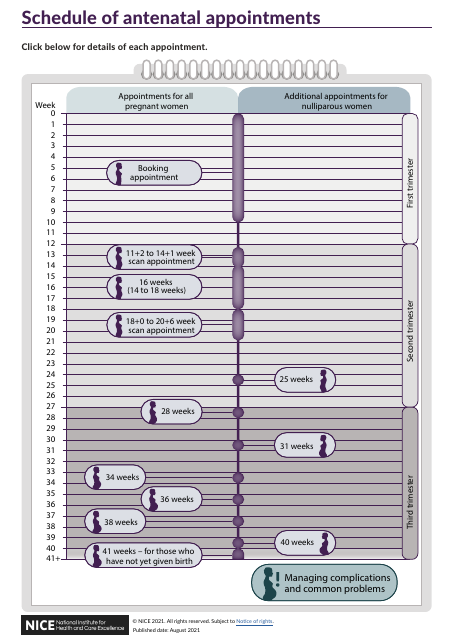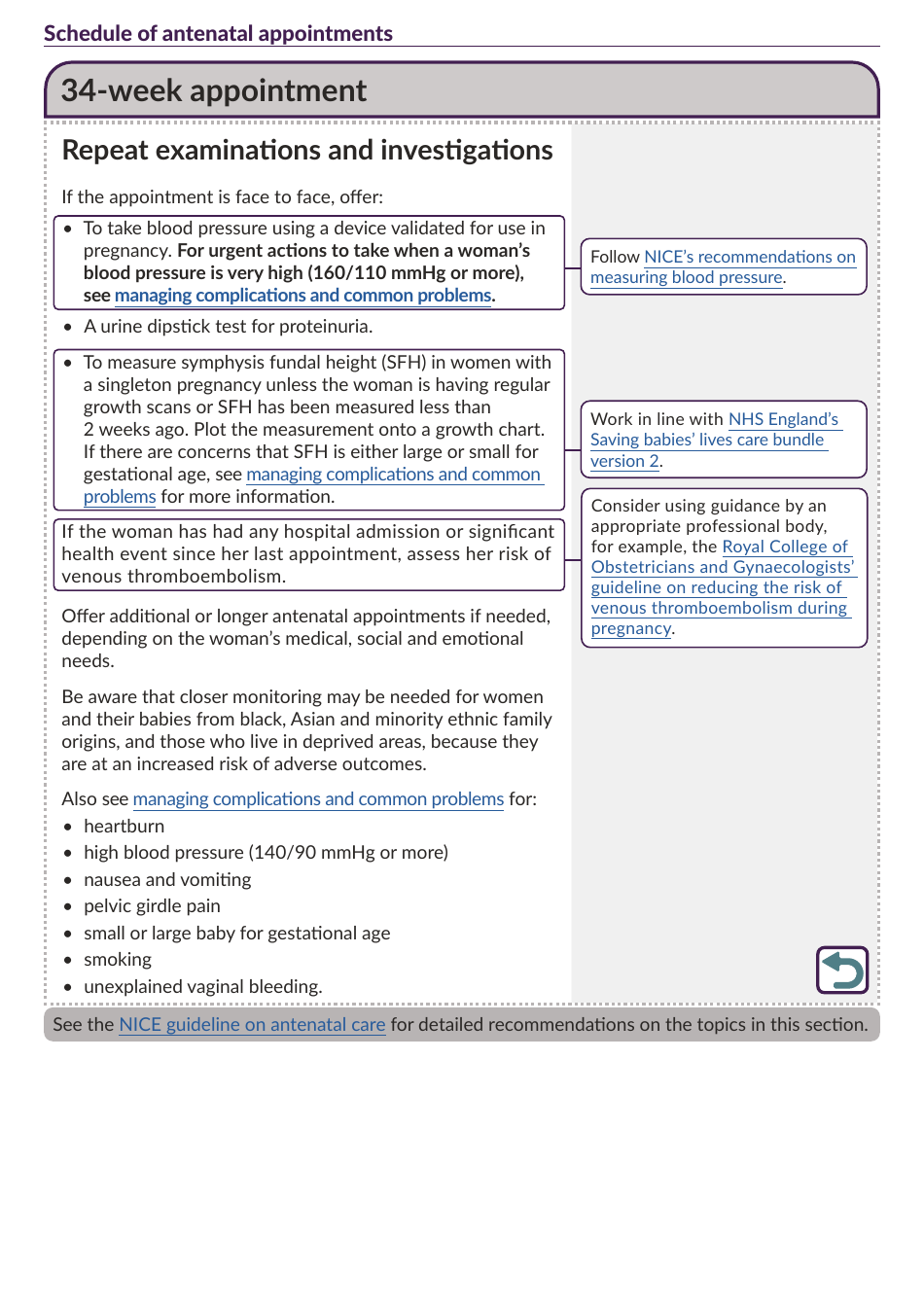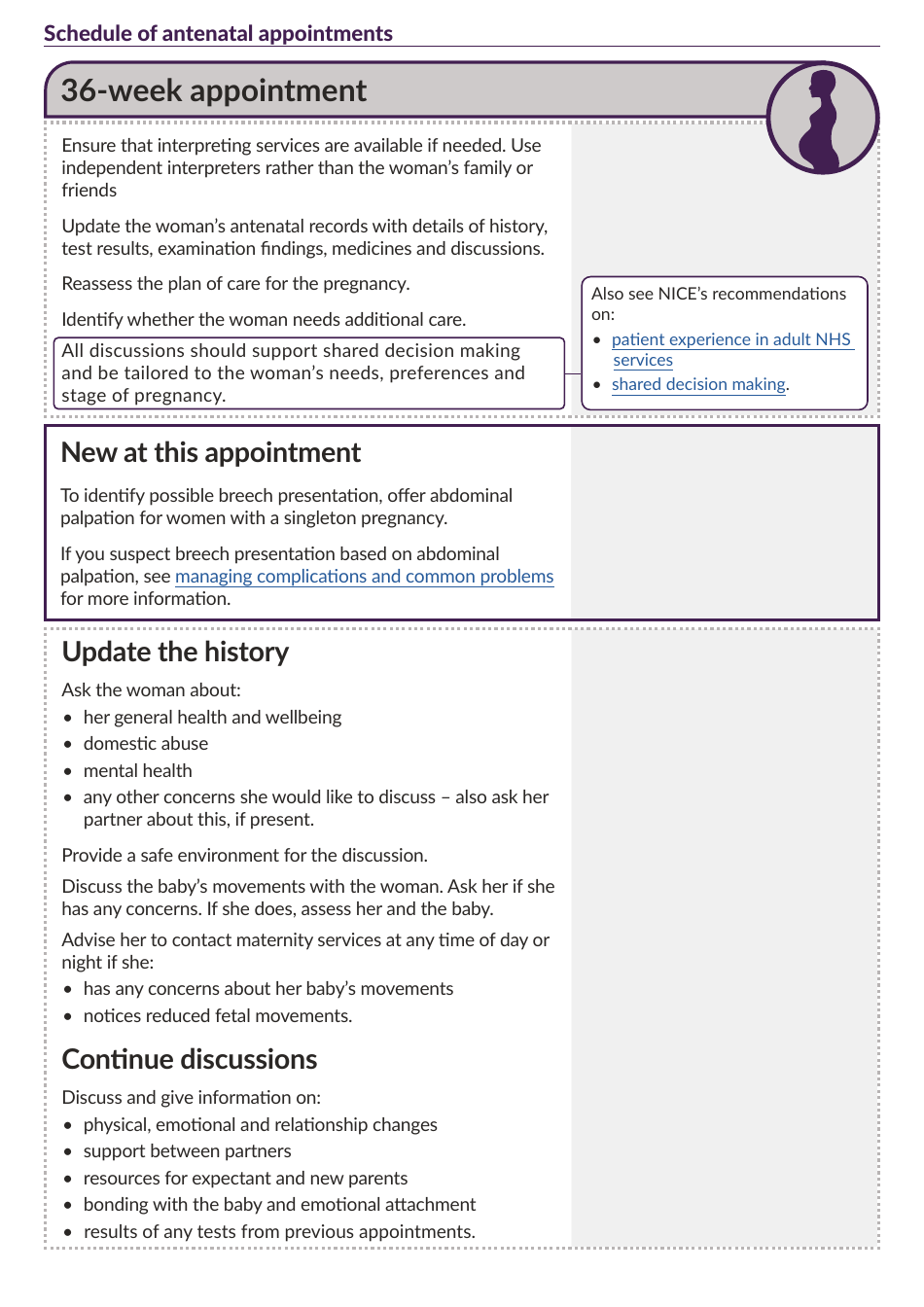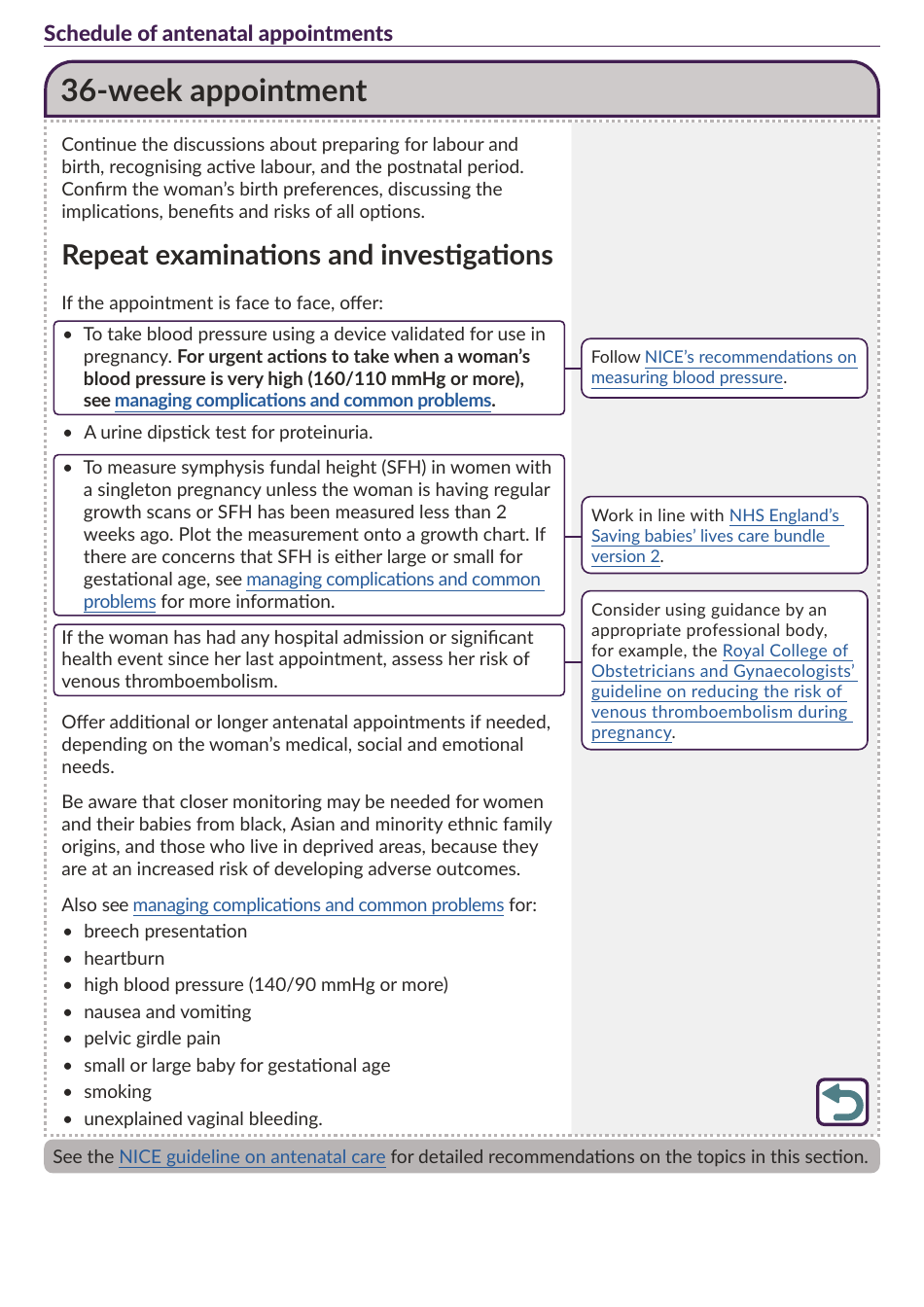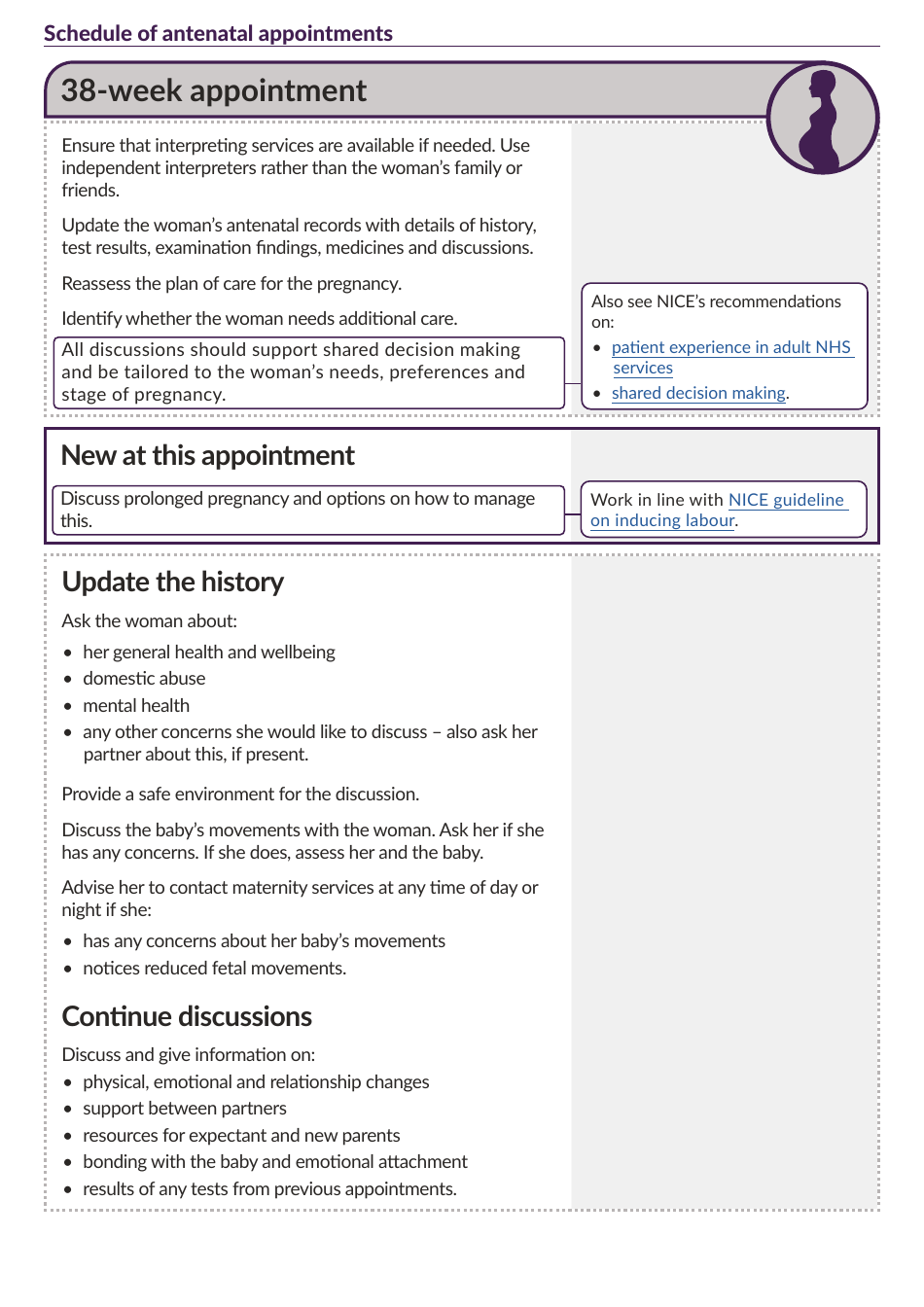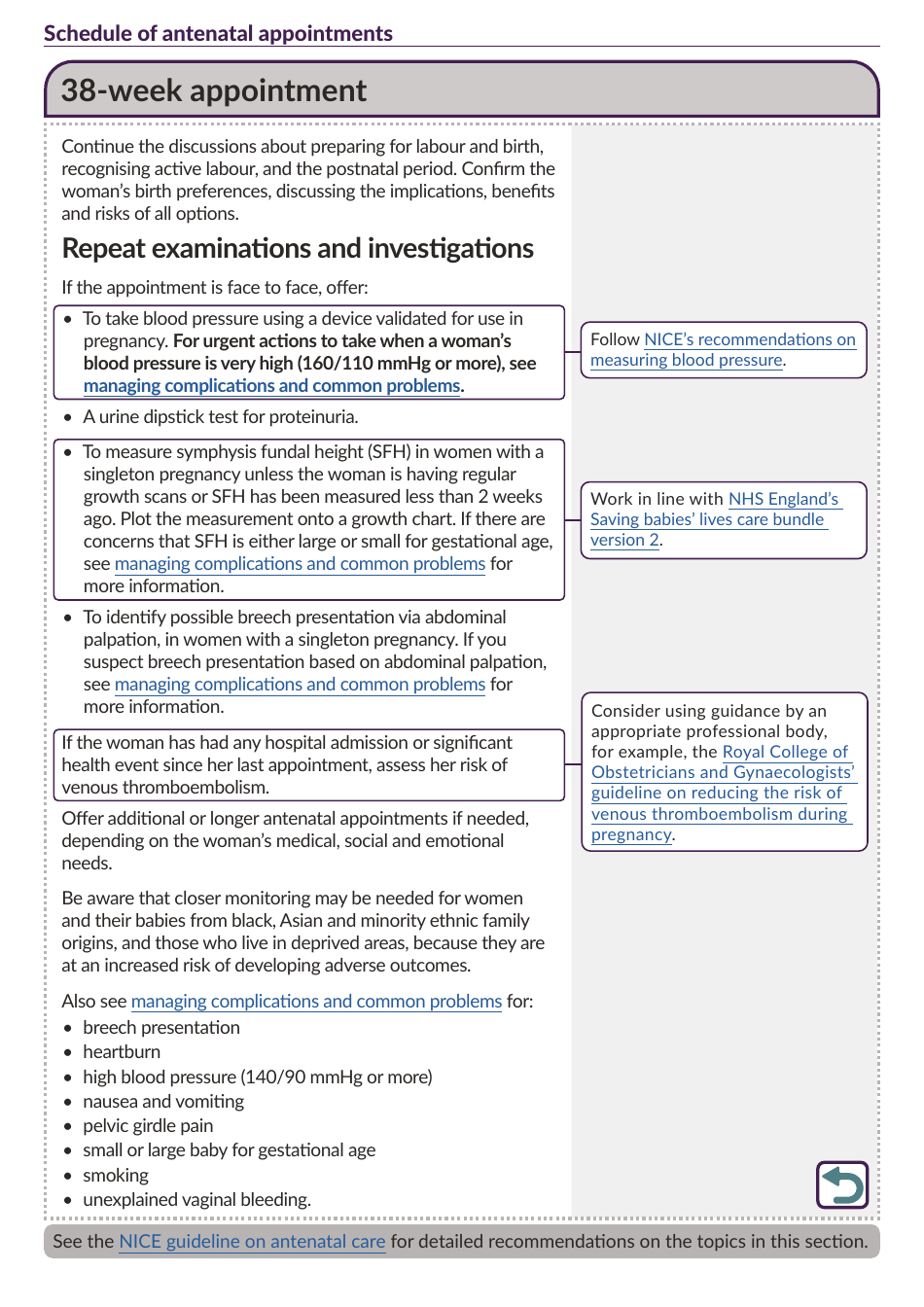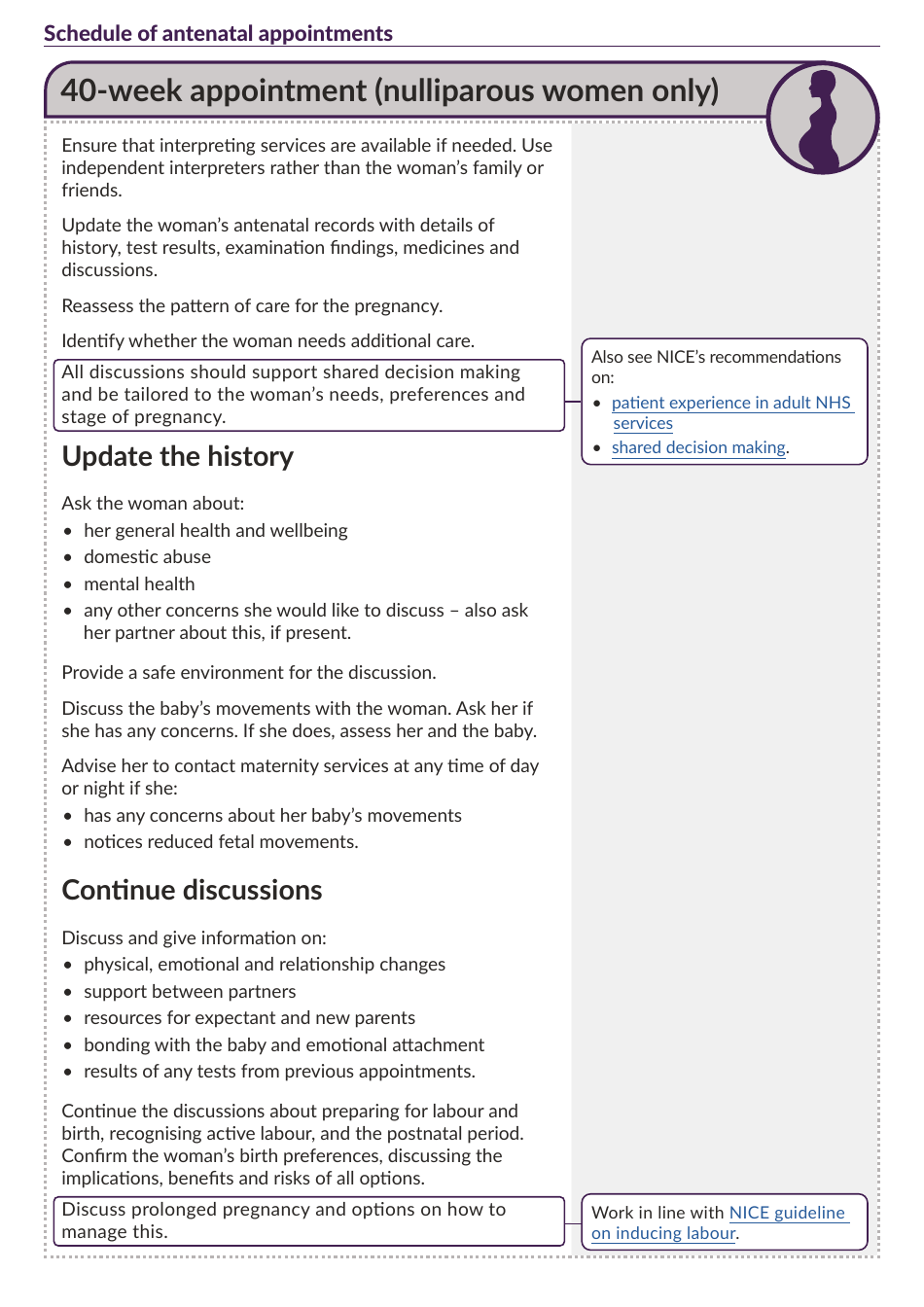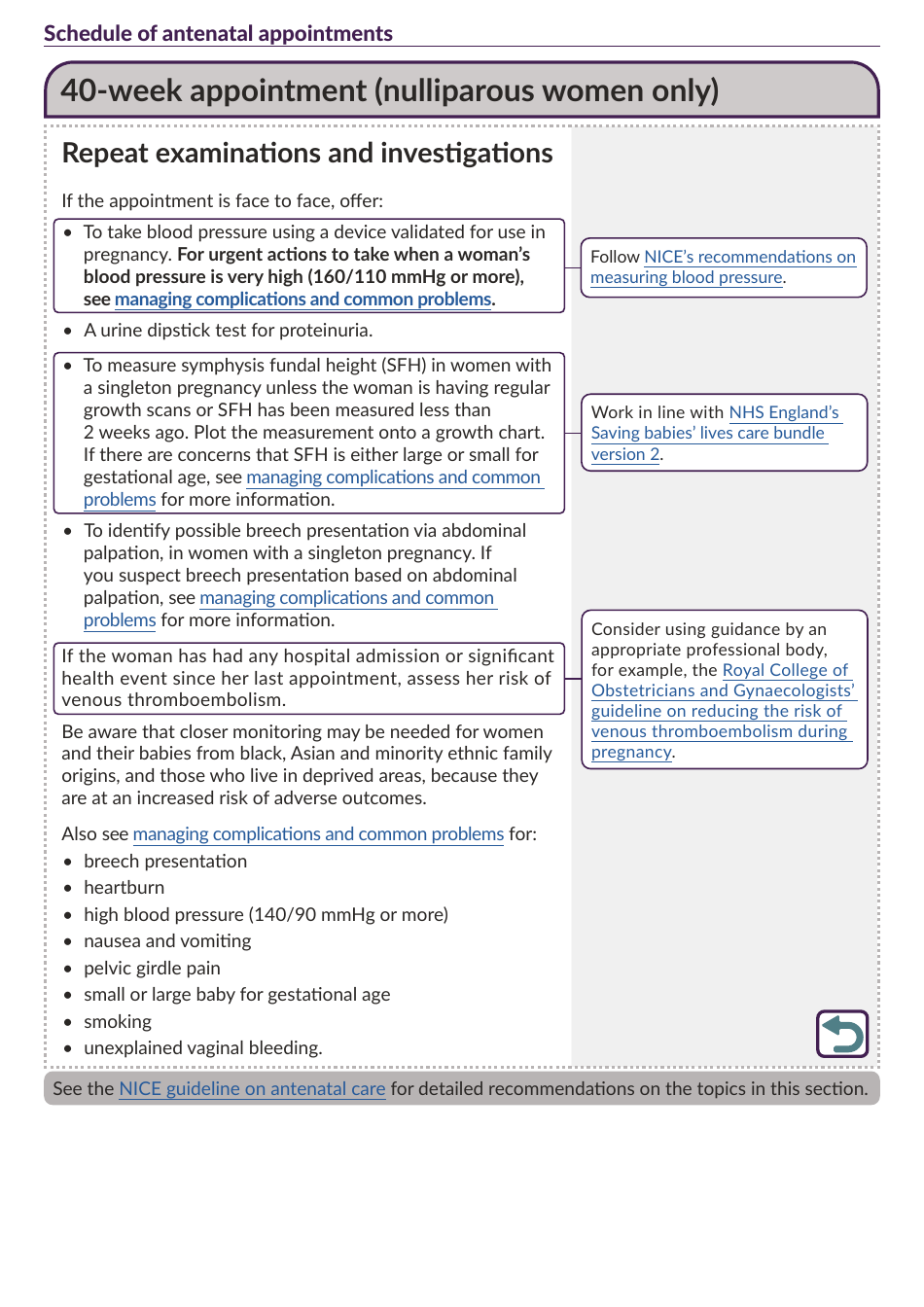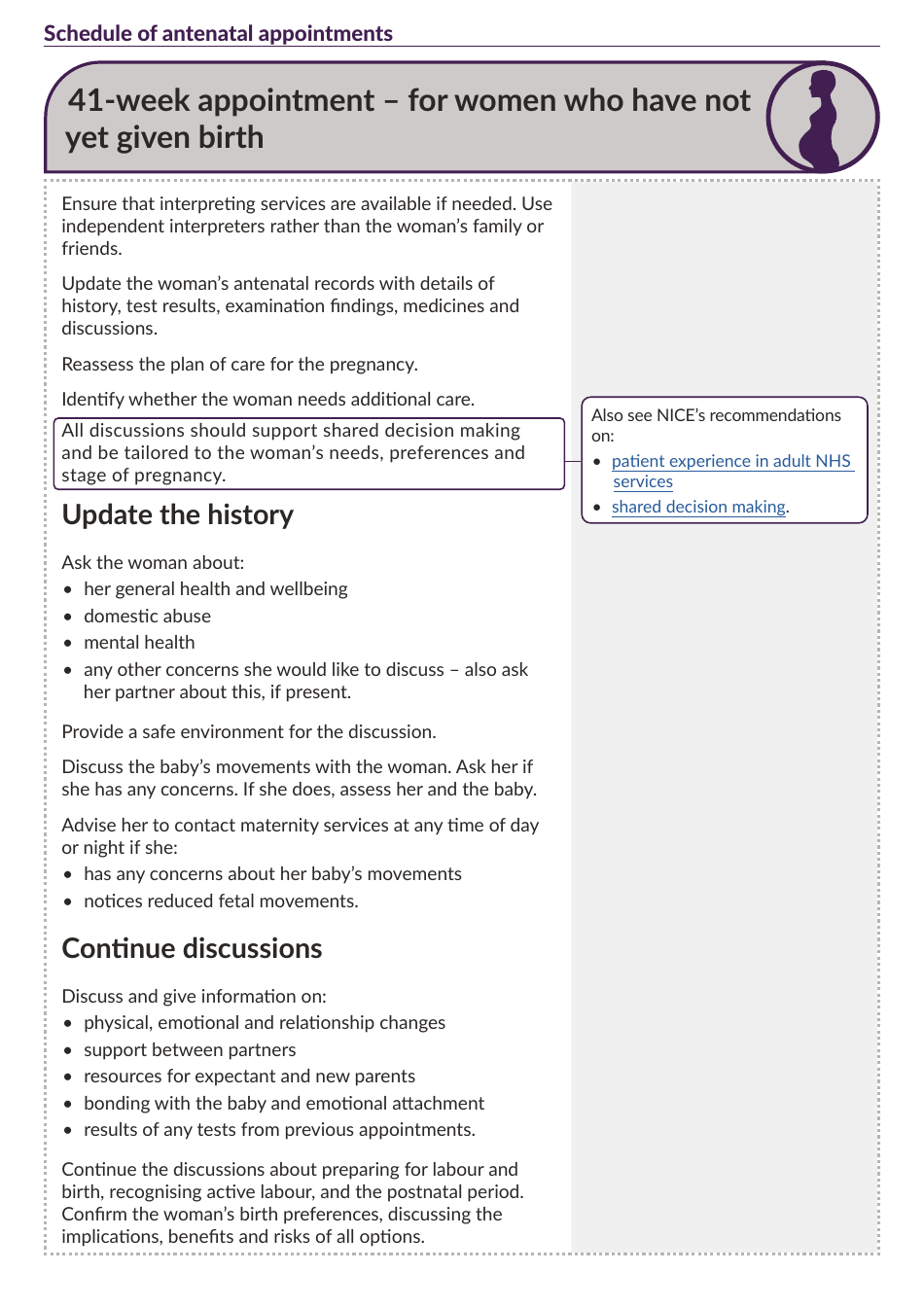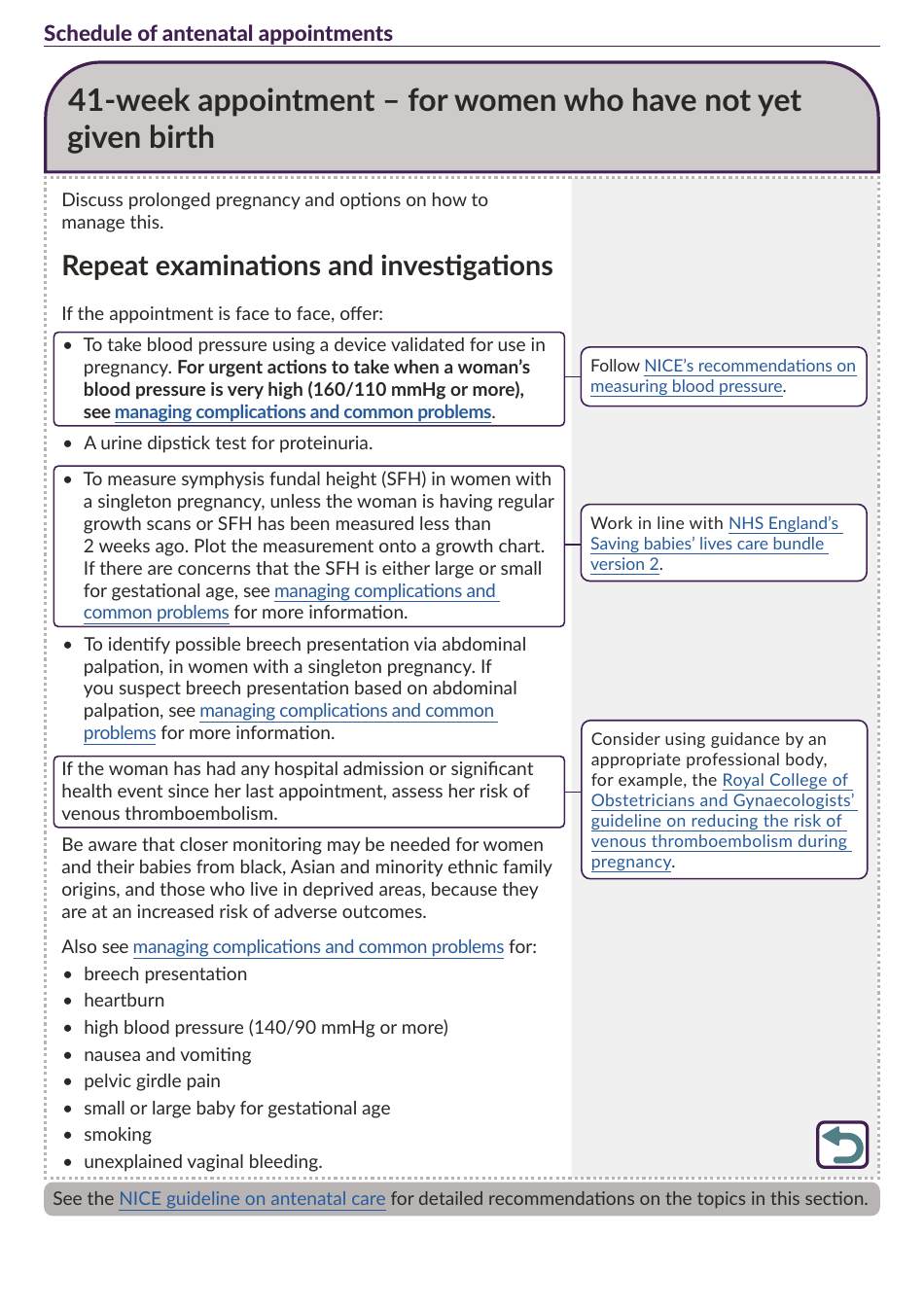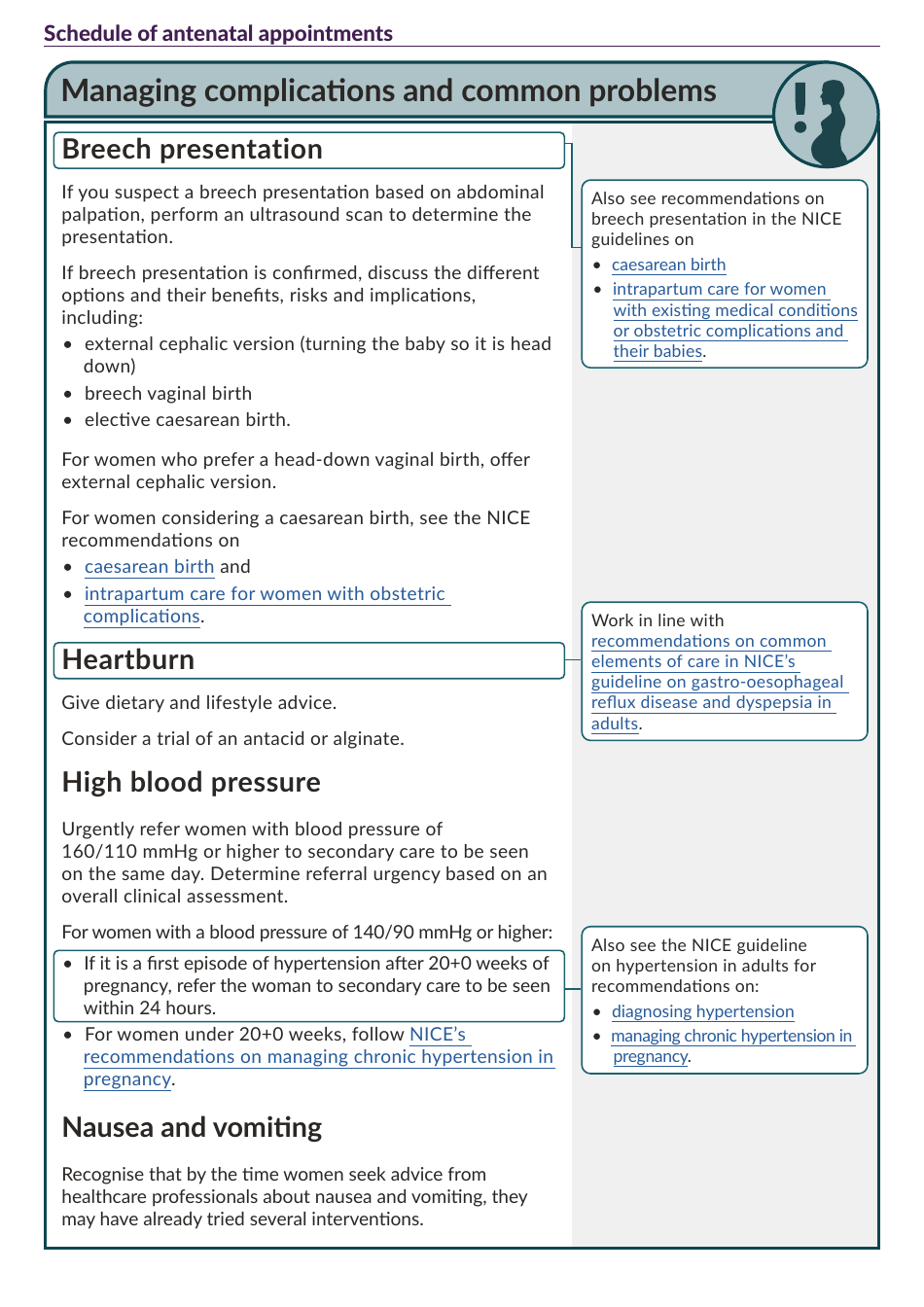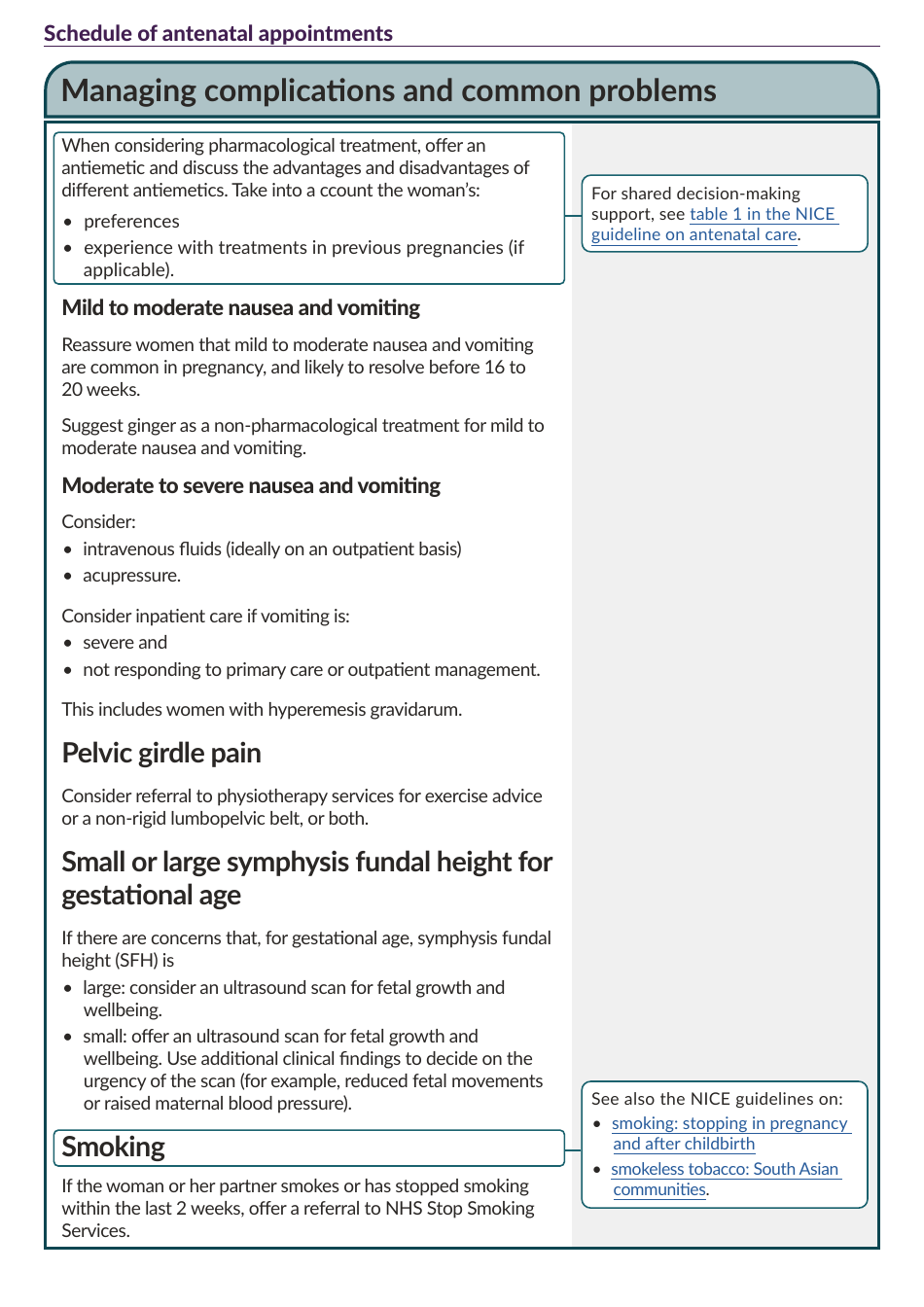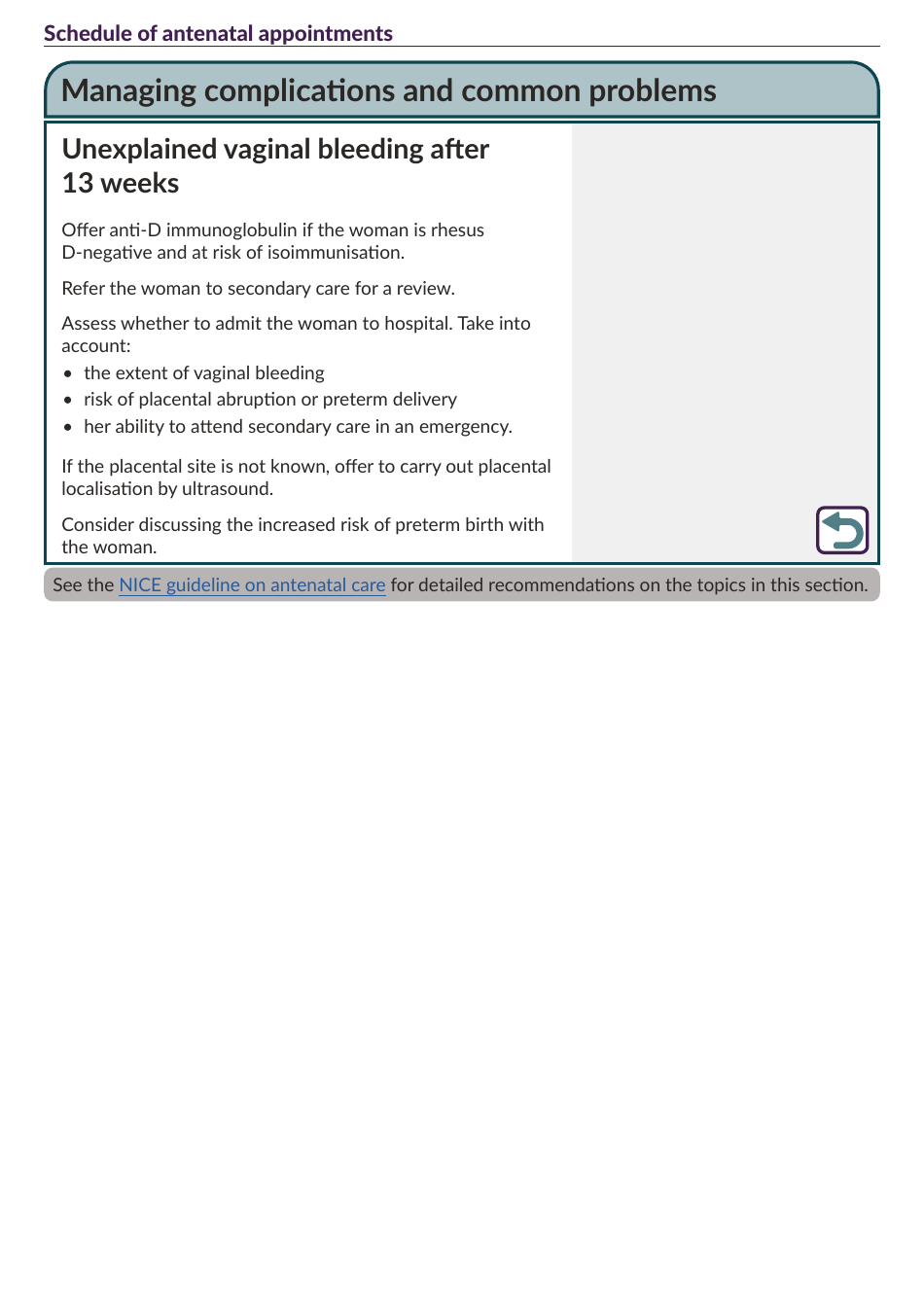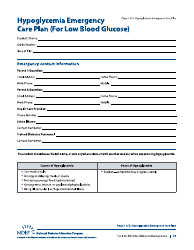Schedule of Antenatal Appointments - National Institute for Health and Care Excellence
The Schedule of Antenatal Appointments by the National Institute for Health and Care Excellence is a guideline that outlines the recommended timing and frequency of prenatal healthcare visits for pregnant women. It helps healthcare professionals ensure that expectant mothers receive appropriate care and support throughout their pregnancy.
FAQ
Q: What is an antenatal appointment?
A: An antenatal appointment is a routine check-up during pregnancy to monitor the health of the mother and baby.
Q: How many antenatal appointments should I have?
A: The number of antenatal appointments can vary, but typically women are advised to have around 10 appointments throughout their pregnancy.
Q: What happens during an antenatal appointment?
A: During an antenatal appointment, your healthcare provider will check your blood pressure, measure your belly, listen to the baby's heartbeat, and discuss any concerns or questions you may have.
Q: When should I start going for antenatal appointments?
A: It is recommended to start going for antenatal appointments as soon as you find out you are pregnant, usually around 8-12 weeks.
Q: Can my partner come with me to antenatal appointments?
A: Yes, many healthcare providers encourage partners to attend antenatal appointments to provide support and bond with the baby.
Q: What should I bring to an antenatal appointment?
A: You should bring your pregnancy notes and any relevant test results to each antenatal appointment.
Q: What if I have concerns or questions between antenatal appointments?
A: If you have concerns or questions between antenatal appointments, you should contact your healthcare provider or midwife for advice or to schedule an additional appointment.
Q: What tests are done during antenatal appointments?
A: Common tests during antenatal appointments include blood tests, urine tests, and ultrasounds to monitor the health and development of the baby.
Q: Is there a cost for antenatal appointments?
A: In the United States, antenatal appointments are typically covered by health insurance, but it is always a good idea to check with your insurance provider to understand any potential costs or coverage limitations.
Q: What if I miss an antenatal appointment?
A: If you miss an antenatal appointment, it is important to reschedule as soon as possible to ensure the health and well-being of both you and your baby.
